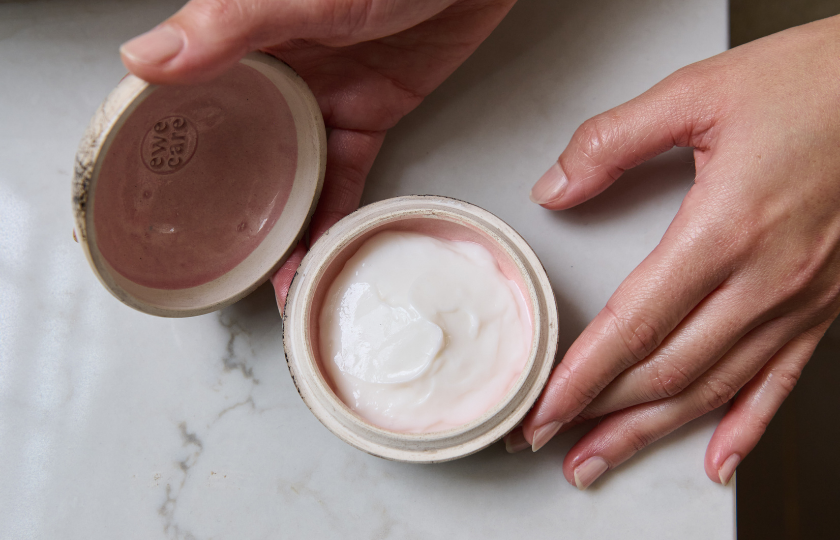The tragic norm for skincare products is to pack them in plastic. Each year, the beauty industry produces around 120 billion plastic packaging units worldwide. From that total, only 14 per cent of plastic waste is recycled, 7 per cent incinerated, and the remaining 79 per cent end up in landfills or the ocean.
Aligned with its commitment to preserve the environment and help minimise single-use plastic waste, Australian skincare brand Ewe Care uses 100-per-cent home-compostable packaging across its entire range and uses components made strictly from organic compounds that naturally degrade in the environment.
The skincare company offers products made from locally harvested Awassi sheep milk, combined with native botanical extracts such as Cape Grim Water, Fucoidan Kelp Extract, Coastal Tea Tree Oil, and Tasmanian Pepperberry. According to the company, the ingredients help reverse moisture loss, improve collagen production, reduce skin redness, combat acne-causing bacteria and UV-induced free radicals.
“Our innovative and sustainable packaging is intrinsically tied to Ewe Care’s core values,” said Nicole Gilliver, co-founder of Ewe Care. “Customers can adopt the farm’s ethos and repurpose elements of the packaging into application sponges or a keepsake box.”
In terms of sustainability, according to Gilliver, the brand’s boxes and brochures are made using high-quality FSC-certified cardboard and vegetable dyes. While the sponge that holds the Raku ceramic and cream is 100-per-cent non-dyed wood cellulose that will break down in home compost.
In addition, the sachets for the creams are TUV home compost certified bio-plastic printed with vegetable dyes.
The Forest Stewardship Council (FSC) is a nonprofit organisation that set standards for forestry practices to promote environmentally responsible and socially beneficial forestry. Wood products such as furniture can be labelled as FSC certified if they meet the high standards set by the organisation.
The clay for the Raku ceramics is sourced from Australia, while the patterns outside the domes are made using burnt excess belly wool from the company’s sheep farm.
Most packaging components are made in China except for the Raku Ceramics sourced from Tasmania.
According to the Australian Standard for home compostability (AS5180), the components must break down in a home compost environment within six months and form compost within a year.
Gilliver shared that the company is in the process of having all the brand’s packaging certified to give customers peace of mind knowing that the company is a certified environmental values-based business.
“We believe in endeavouring to achieve an environmental outcome that marries with human habit and where and how we live,” she added.
“We live in rural Tasmania where the rubbish collection is simply not a thing, and therefore it made sense to us to develop a skincare option that is packaged in a way that reflects real human behaviour and living conditions, not aspirational recycle/upcycle propositions. It’s not perfect, but we’re not done yet.”
Available only in Australia, Ewe Care day and night creams can be purchased in refillable 60ml sachets or a ceramic vessel to protect ingredients from light and oxygen degradation.
Other companies offering sustainable beauty packaging options include China’s Meiyume and Urth’s algae-based lipstick case.



